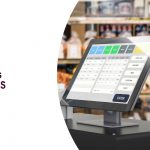E-commerce Metrics You Need To Keep An Eye On
When you’re running your store, success is the only thing on your mind. But you’re going to need a lot more than just a good gut-feeling if you want to get it – you need to be able to measure the effectiveness of your methods.
This becomes even more important for an e-commerce store, something that doesn’t have a physical presence to begin with; it takes a complex blend of marketing elements, as well as smart business tactics, in order to launch an e-commerce store. Since it is an online set-up, you’ll need the right metrics in order to quantify how well your business decisions are being executed.
Now, “metrics” is a big word – so which ones should you keep an eye on? Let’s find out:
CTR
People might be viewing your advertisement alright – but how would you know whether people are even visiting your website or not?
The answer to that is through CTR – i.e. the Click-Through Rate. It measures the percentage of people who are clicking on an advertisement or a search engine result to visit your website. As a result, it’s measuring how many people are interested in your product.
Moreover, it gives you insight on how effective your ads or social media campaigns are: are your ads being viewed at all, or do they slip by without anyone’s notice? How well are they gauging interest? CTR helps give a number to your advertisements’ success, allowing you to better optimise your marketing strategies.
CPC
Marketers love thinking outside of the box, wanting to innovate ways of promoting their product – but more often than not, their budget keeps them from going too far.
So how can a marketer plan, while simultaneously knowing how effectively their money is being spent? A great metric to track that is the CPC – Cost Per Click.
It works because it gives the success of a marketer’s approach a number – a number they can measure, analyse, record, and use for the future. It does so by calculating how much money is being spent for every click leading to your website. Ideally, this number should be low – you want the most clicks in the least possible budget. Such a simple yet advanced metric helps e-commerce store owners to better understand their marketing budget, and optimise it further.
Gross Margin
Where revenue measures the total amount of money your store is earning, gross margin measures the amount left when you’ve paid all your dues and bills. A higher gross margin shows that you’re retaining more than you’re wasting.
This is just as important as any other metric, because it shows how your money is being spent and saved. It helps you gain a better idea on what areas of business aren’t generating profits, and which parts no longer need that much investment.
Transactions
Transactions show the number of orders made on your online store, and is the most direct way you can measure your sales performance. Since they contribute the most to your overall revenue, its important you analyse this metric on a day-to-day basis, and record it weekly or monthly. It helps establish useful trends – most popular product, item being sold the least, and future prospects of growth.
If you’re a store owner who is managing both a brick-and-mortar store and an e-commerce set-up, then handling this metric becomes hard. For this reason, investing in a cloud-based POS system works wonders; one POS software in Pakistan, called Oscar, allows you to keep track of your sales in both your physical and online store simultaneously. It’s simple user-interface, intuitive dashboard and unified platform helps keep your data safe, easily accessible and tangible enough to make good business decisions.
The list could go on and on – there are just way too many metrics you could focus on, for all kinds of businesses. The key takeaway is to focus on the ones that define your success while keeping the following things in perspective:
- The people interacting with your brand
- The money being spent bringing in those people
- How much money is being earned
- How much money is being retained
Such key metrics – mixed in with a few more, per your requirement – will help you make sure your store never falters on the path to profit.








